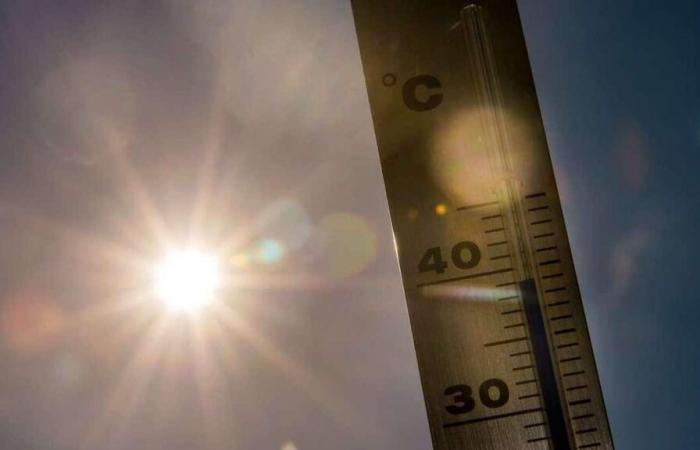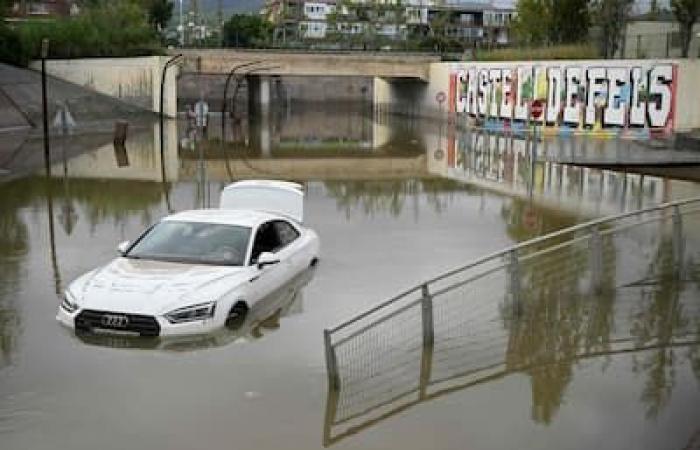The year 2024 will almost certainly be the hottest year on record and the first with an increase in the average global temperature of 1.5 ° C above the pre-industrial period, according to data from the European Copernicus service published after the second warmest month of October.
• Also read: Rate of deforestation in the Brazilian Amazon at its lowest level in nine years
• Also read: With Trump, climate skepticism is back in power
• Also read: Japan: first snow on Mount Fuji, the latest ever seen
“After 10 months of the year 2024, it is now almost certain that 2024 will be the hottest year on record and the first year with more than 1.5 ° C above pre-industrial levels”, according to the base of Copernicus ERA5 data, Samantha Burgess, deputy director of the Copernicus Climate Change Service (C3S), commented on Thursday.
It is even “likely” that warming exceeded 1.55°C during the calendar year, according to Copernicus. “This marks a new milestone in global temperature records and should serve as a trigger to raise ambition in the next conference on climate change, COP29,” underlined Samantha Burgess.
This COP, which opens on November 11 in Baku, Azerbaijan, will be devoted to the delicate search for a new financing objective to enable developing countries to reduce their greenhouse gas emissions and adapt to climate change.
It will also be held in the shadow of the upcoming return to the American presidency of Donald Trump, who doubts the reality of climate change. “It is not a question of global warming, because at certain times, the temperature begins to drop a little,” he said, in contradiction with the scientific consensus.
According to Copernicus, October was the second warmest month in the world, after October 2023, with an average temperature of 15.25°C. This is 1.65°C warmer than the pre-industrial levels of 1850-1900, before the massive use of fossil fuels (coal, oil, gas) greatly warmed the atmosphere and the oceans.
It’s also the 15the months over a period of 16 months that the average temperature exceeds 1.5°C of warming.
This symbolic figure corresponds to the most ambitious limit of the 2015 Paris agreement, aiming to contain warming well below 2°C and to continue efforts to limit it to 1.5°C.
Even more catastrophic climate change events such as droughts, heatwaves or torrential rains.
This historic agreement, however, refers to long-term climate trends: the average must remain above 1.5°C of warming for 20 to 30 years for the limit to be considered to have been crossed.
“Not up to par”
According to the latest UN calculations, however, the world is not at all on track to respect this limit, which would nevertheless make it possible to avoid the effects current policies would lead to “catastrophic” warming of 3.1°. C over the century, according to the United Nations Environment Program (UNEP). And even taking into account all the promises to do better, the average global temperature would rise by 2.6°C.
The deadly effects of global warming were recently illustrated again by the floods in southern Spain, which left more than 200 people dead, the vast majority in the Valencia region.
“Climate calamities are our new reality. And we are not up to the task,” UN Secretary-General António Guterres stressed on Thursday.
“We must adapt now,” he urges, while a UN report once again denounces an insufficient amount of international public funds allocated to the poorest countries for adaptation measures.
AFP
Copernicus notes that precipitation was above average in October in the Iberian Peninsula, but also in France, northern Italy and Norway.
Scientists agree that across most of the planet, extreme precipitation events have become more frequent and intense due to climate change.

AFP
A warmer atmosphere retains more moisture and warming of the oceans can also affect the distribution of precipitation and the intensity of storms.
Copernicus rightly notes that last month was the second warmest October for ocean surface temperatures.








